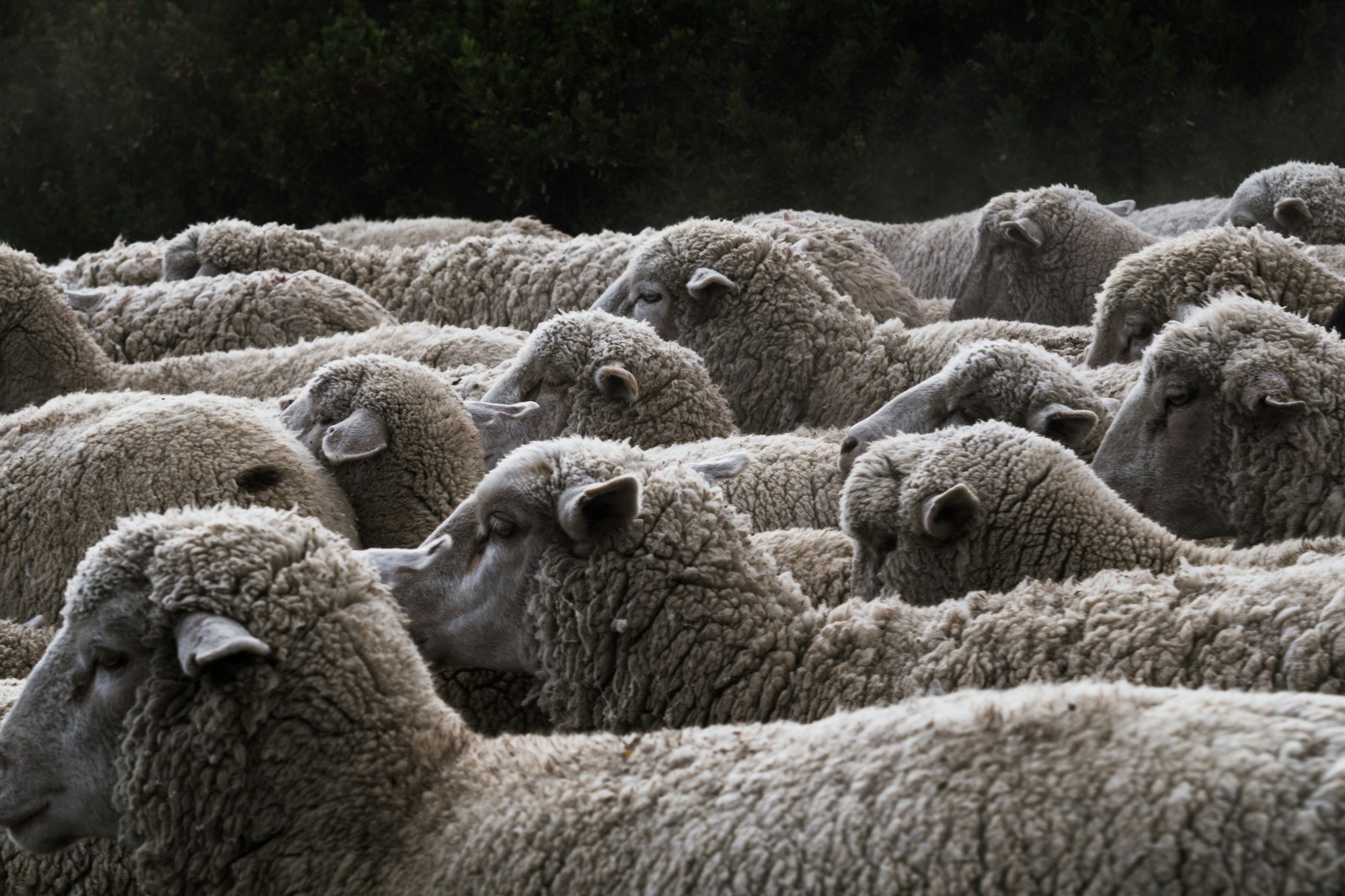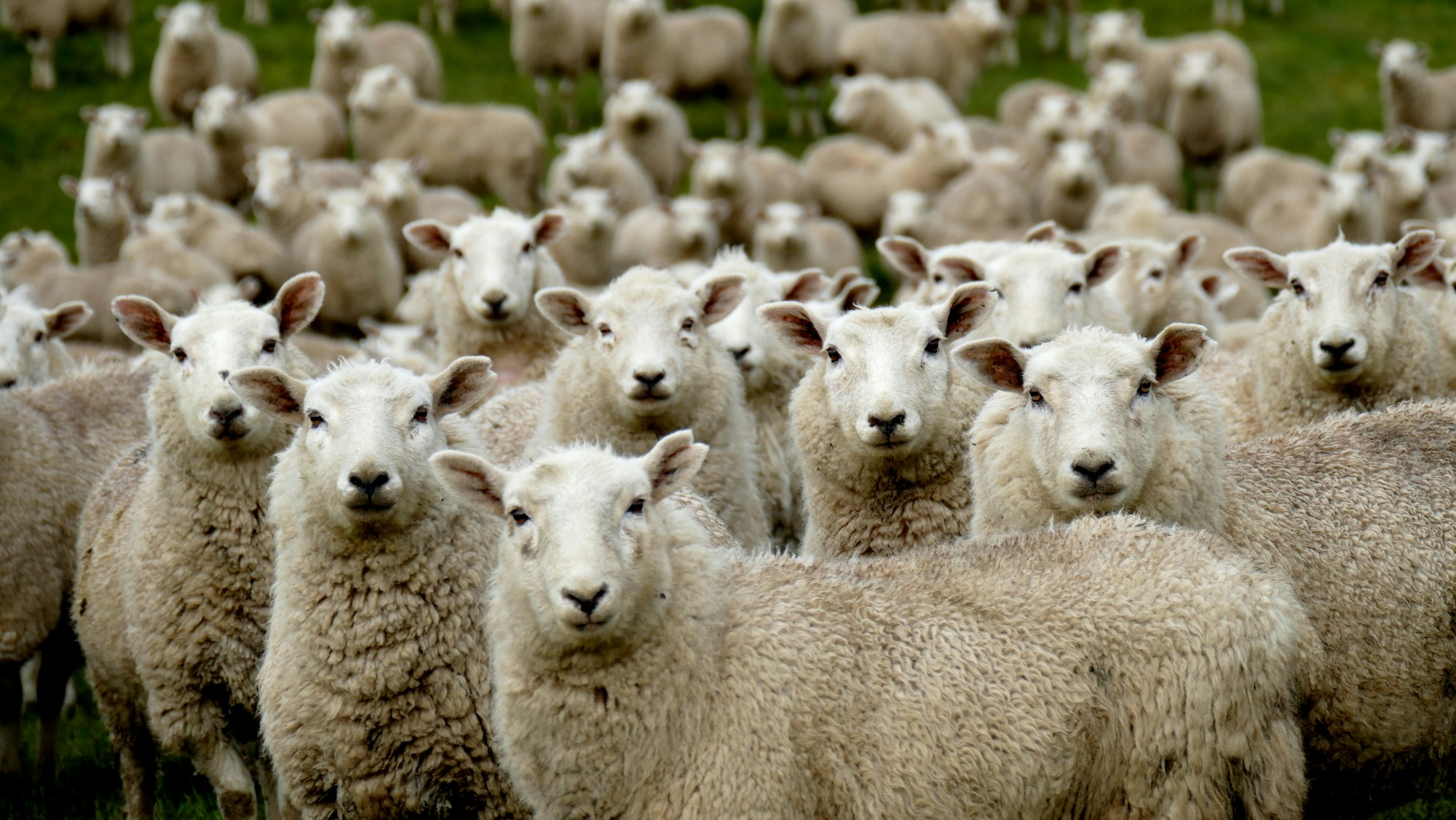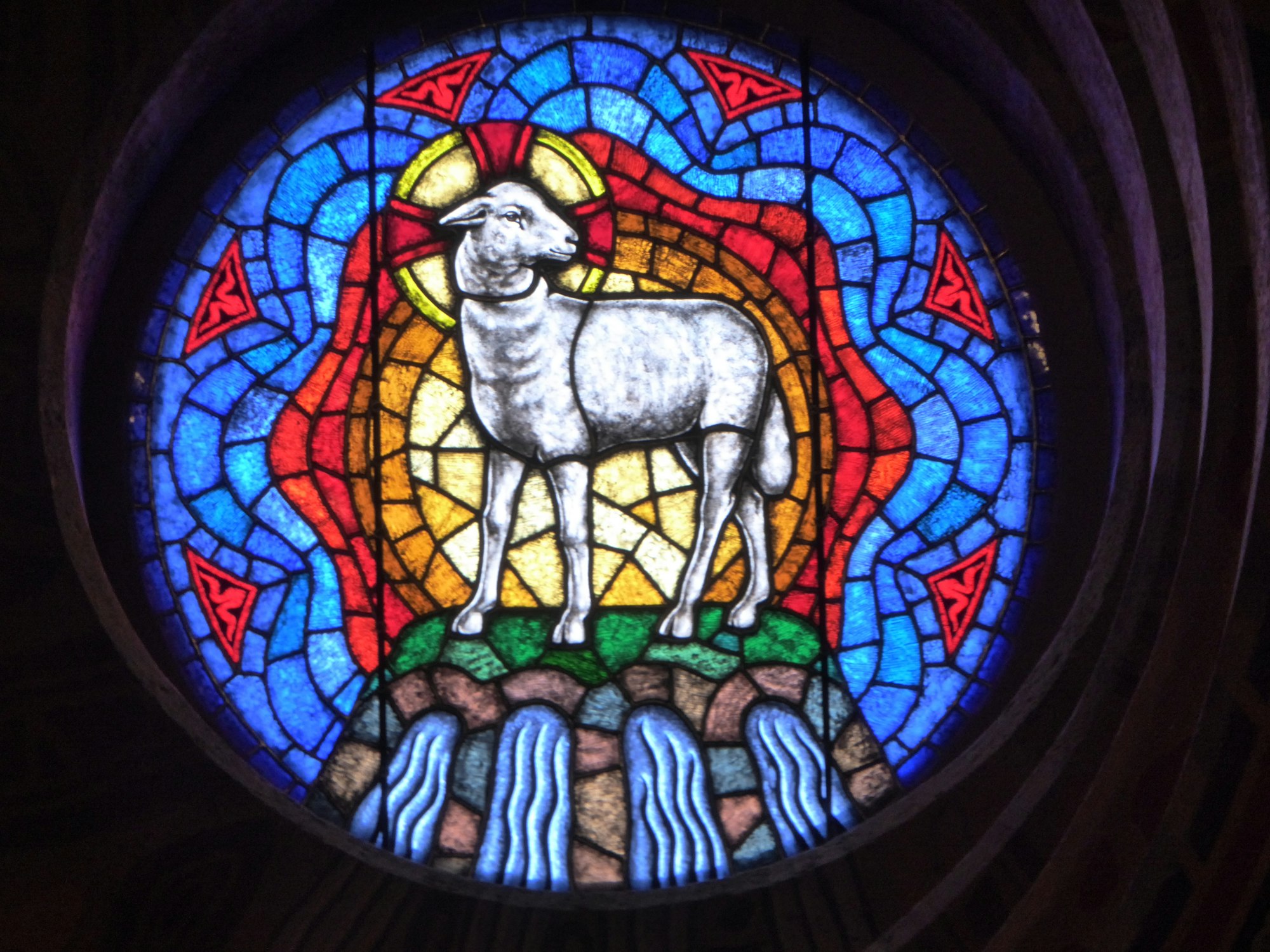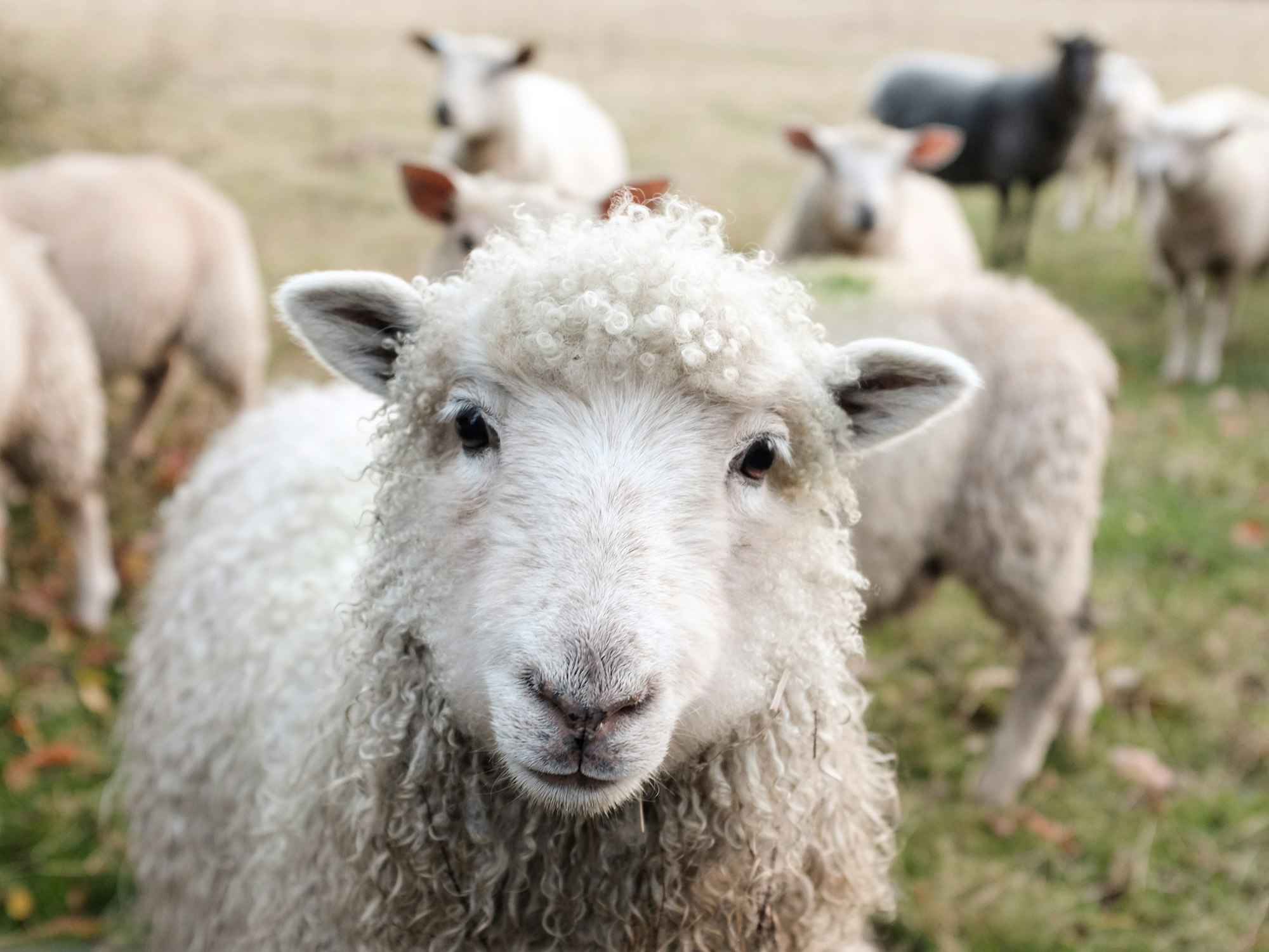If you're like me, you know almost nothing about sheep. You may have stroked one at a petting zoo or State Fair, but aside from your cable-knit sweater from L.L. Bean, you and sheep don't have much in common. The closest I've come to sheep is a card game called sheepshead, a favorite with my Milwaukee golf friends.

Yet, the Bible has a habit of calling followers of God, sheep. Why?
I've been rereading the classic, A Shepherd Looks at Psalm 23, by Phillip Keller. As a man who shepherded sheep for many years, Keller provides unique perspective on the parallels between sheep and followers of Jesus. Here are a few things about sheep I didn't know:

- Since sheep require meticulous attention and care, they must be owned by a Shepherd. They cannot survive on their own.
- And since they're owned, they must be earmarked. A painful identity-marker is carved into their ears, as branding-proof they belong to a particular shepherd. (Exodus 21:5-6)
- The welfare of sheep is completely dependent upon the Shepherd, not the sheep.
- Sheep follow the crowd, mindlessly.

- Sheep are timid and easily frightened.
- Sheep can be stubborn and stupid.
- Sheep won't settle down without four freedoms – Freedom from fear. Freedom from flock tension. Freedom from pests. Freedom from hunger.
- Sheep have no means of self-defense and are therefore reassured by the Shepherd's presence.
- Sheep compete for higher status in the flock through butting competitions – though they'll stop in the presence of their Shepherd.
- The smallest flies unhinge them.

- Sheep can survive for months on the early dew on the grass – if they feed on it (like God's Word).
- Sheep can be cast down – rolling over on their backs – like a turtle that can't right itself. If a sheep remains on its back too long, it's easy prey for predators.
- A Shepherd will spend hours searching for one lost sheep. Without his effort, a lost sheep is doomed.
- When sheep grow too much wool (possessions), they're likely to recline and tip over into a cast state.

- Though being sheared is painful and uncomfortable, it produces great freedom and joy afterward.
- Sheep must remain on the move – to new trails and pastures – or they'll over-graze a field and ruin its long term sustenance.
- Sheep travel through valleys. Why? Because valleys (carved by streams) provide water, lush grass, and the safest route up mountains.
- In dark valleys, sheep draw strength from the Shepherd's presence.
- Sometimes a Shepherd lays his staff upon a sheep as they walk jointly on their journey.
I'm sure, if you're like me, you see parallels between sheep and yourself. For example, do I follow the crowd? Do I butt heads with others to improve my status in my community? Do I accumulate too much "wool," endangering myself? Am I reluctant to stay on the move with my Shepherd, preferring the comfort of the known? Do I regularly wander off, seeking life away from my Shepherd?
Beyond these parallels, the Scriptures are replete with comparisons of Christians to sheep:

- "Know that the Lord is God. It is He who made us, and we are His; we are his people, the sheep of his pasture." (Psalm 100:3)
- "All we, like sheep, have gone astray, each of us has turned to his own way; and the Lord has laid on Him the iniquity of us all." (Isaiah 53:6)
- "I have strayed like a lost sheep..." (Ps 119:176)
- "For you were like sheep going astray, but now you have returned to the Shepherd and Overseer of your souls." (1 Peter 2:25)
- "When Jesus saw the crowds, he had compassion on them, because they were harassed and helpless, like sheep without a shepherd." (Matthew 9:36)
- "The sheep listen to the [Shepherd's] voice. He calls his own sheep by name and leads them out ... he goes ahead of them, and his sheep follow him because they know his voice." (John 10:3-4)
- "I am the Good Shepherd; I know my sheep and my sheep know me ... I have other sheep who are not of this sheep pen. I must bring them also. They too will listen to my voice, and there shall be one flock and one Shepherd." (John 10:14-16)
Finally, it's significant that the Great Shepherd of the sheep, Jesus Christ, actually became a sheep at the most critical moment in history. While remaining fully Shepherd, he became a sheep when sacrificed on the cross for our sin.

- "Behold, the Lamb of God, who takes away the sin of the world," said John the Baptist. (John 1:29)
- "He was led like a lamb to slaughter, and as a sheep before her shearers is silent, so he did not open his mouth." (Isaiah 53:7)
- "...Christ, our Passover lamb, has been sacrificed." (1 Corinthians 5:7)
- "You were redeemed ... with the precious blood of Christ, a lamb without blemish or defect." (1 Peter 1:19)
- "Worthy is the Lamb who was slain to receive power and wealth and wisdom and strength and honor and glory and praise!" (Revelation 5:12)
The Shepherd became the Sheep – the Lamb sacrificed in our place. What a Savior!


